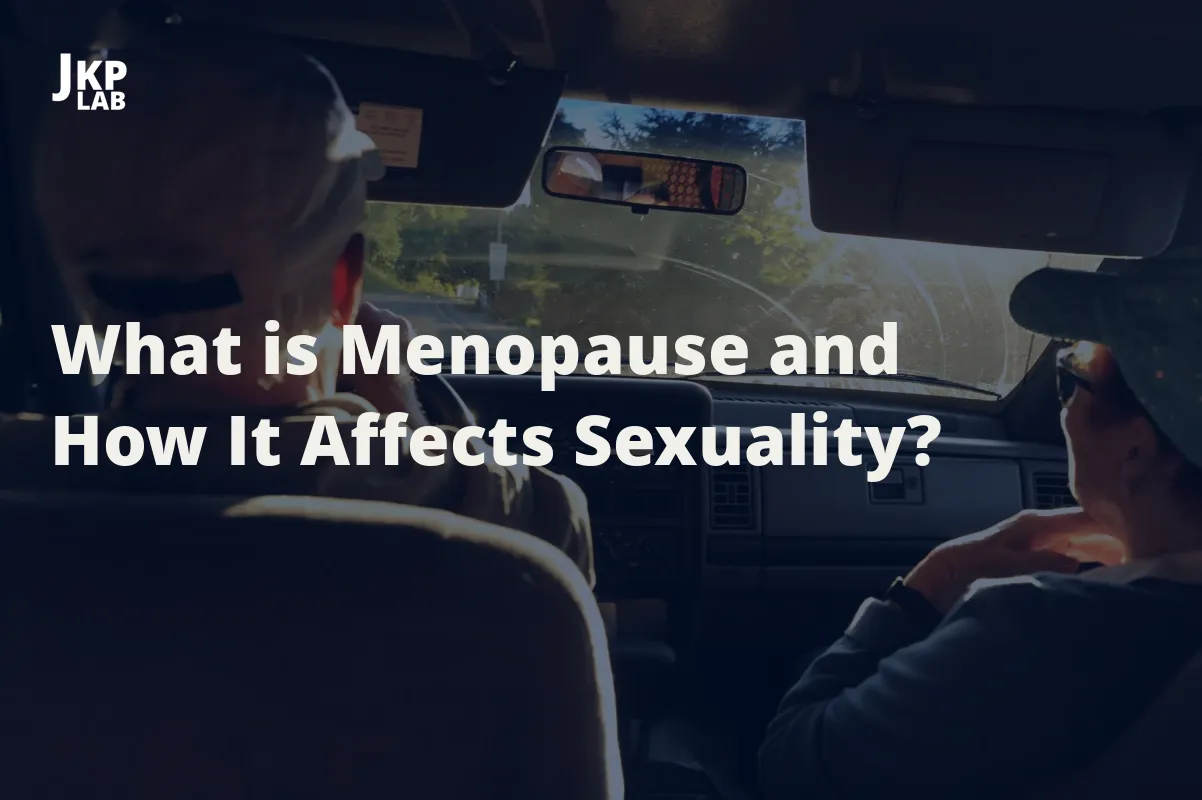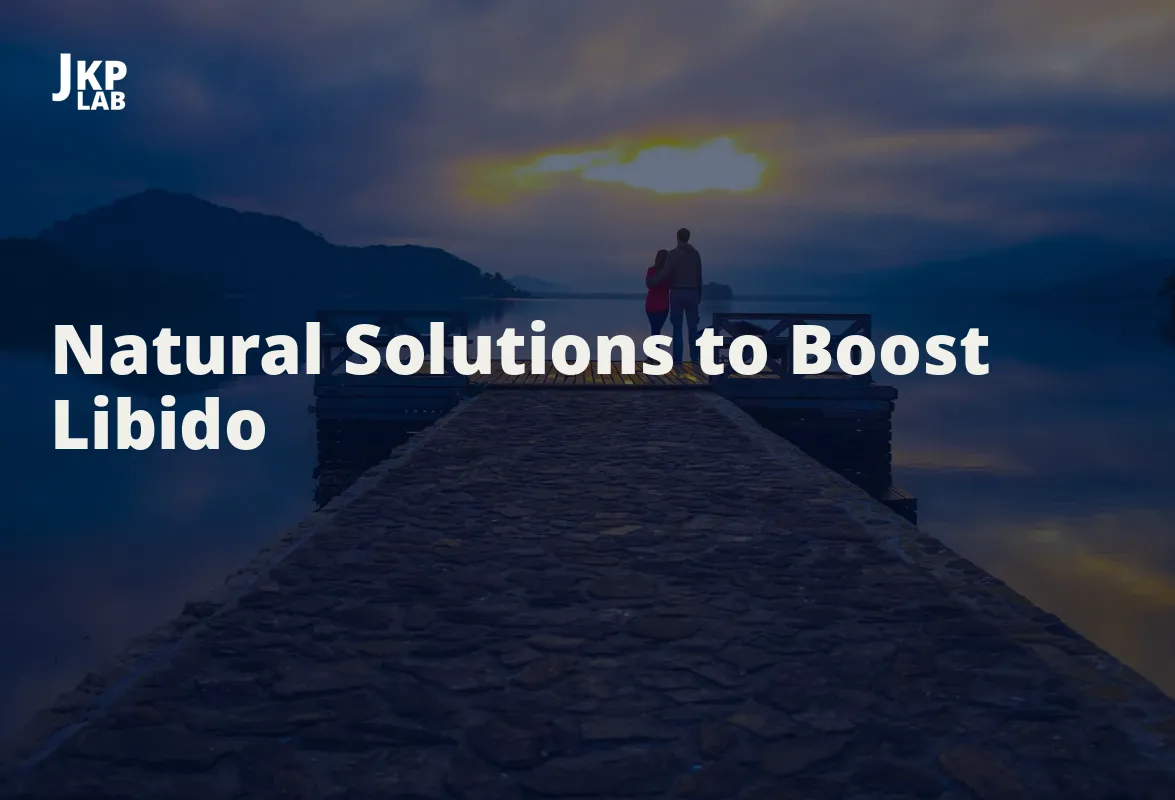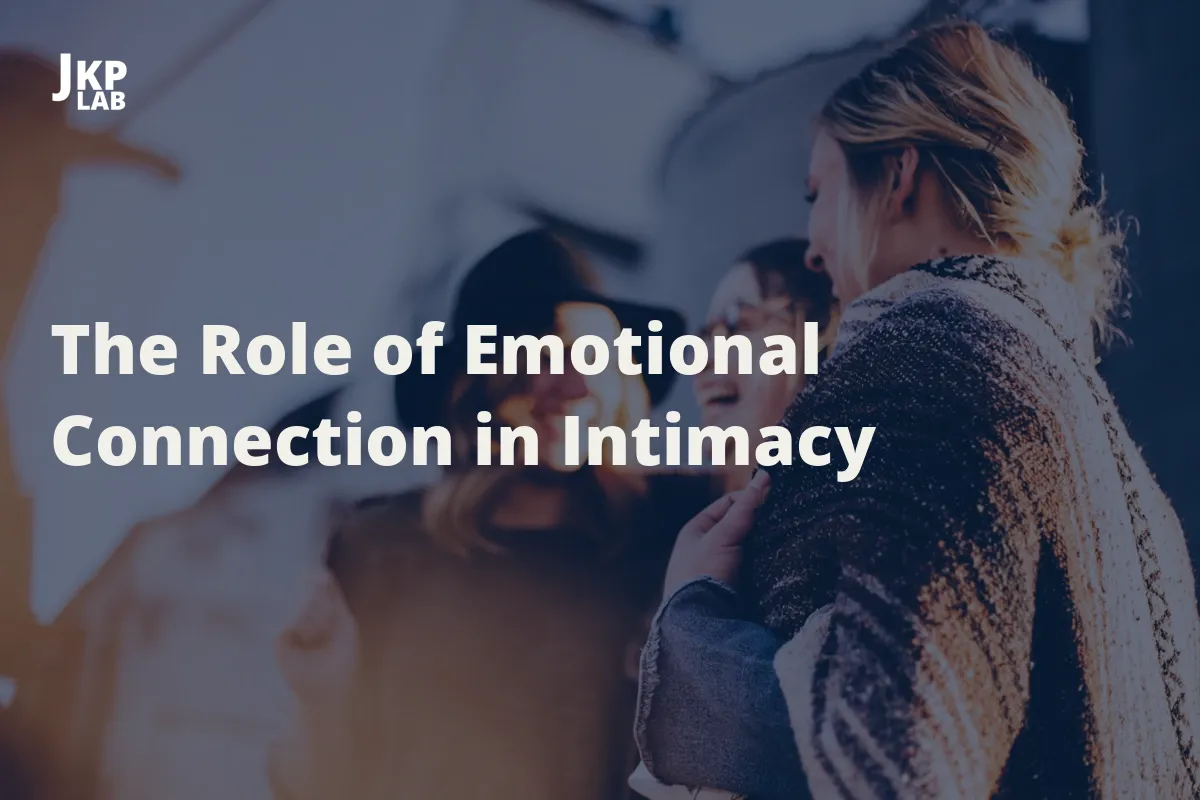
What is Menopause and How It Affects Sexuality?
Menopause is a natural biological process that every woman experiences in her life. It marks the end of her reproductive years and typically occurs in her late 40s or early 50s. But what does it mean for her sexuality?
The Biological Changes
During menopause, the body undergoes significant hormonal shifts. Most notably, there’s a decline in the production of estrogen and progesterone. These hormones play a pivotal role in a woman’s reproductive system, and their decrease can lead to various symptoms such as hot flashes, mood swings, and sleep disturbances. Among these changes, many women also experience a dip in their sexual desire.
Sexuality and Menopause: The Link
Sexual desire, or libido, is influenced by a combination of biological, psychological, and social factors. With the decline of estrogen, there may be physical discomforts like vaginal dryness which can make intercourse painful. Additionally, the emotional and psychological toll of navigating through the myriad of menopausal symptoms can indirectly dampen the desire for intimacy.
But it’s essential to note that not all women experience a decrease in libido during menopause. For some, the freedom from the worries of unplanned pregnancies can even lead to a reinvigorated interest in sex.
The Influence of Societal Perceptions
One cannot discuss sexuality during menopause without addressing the societal perceptions that often come with it. Many cultures erroneously associate youth with beauty and sexuality. As women age, they might feel pressured by the societal standards which insinuate that they should no longer be sexual beings after a certain age. These misconceptions can play a significant role in influencing a woman’s self-perception and her relationship with intimacy.
For a comprehensive understanding of the biological and psychological shifts during menopause, it’s recommended to read the detailed guide at All You Need to Know About Menopause.
Conclusion
Menopause is a natural phase in a woman’s life, bringing about many changes, including those related to sexuality. While biological factors play a role, societal perceptions can also influence a woman’s relationship with intimacy during this period. It’s crucial for women to stay informed, seek solutions, and prioritize open communication with their partners as they navigate through this chapter of their lives.

Debunking the “Asexual Aging” Myth
What is the “Asexual Aging” Myth?
The “Asexual Aging” myth is a widespread belief that as people grow older, they naturally lose interest in sexual activities or become asexual. This idea perpetuates the notion that aging and a decreased interest in intimacy go hand in hand.
Where Did This Myth Originate?
The origins of this myth are hard to pinpoint. However, societal norms and media representations often show young people as the epitome of desire and passion, while older individuals are seldom portrayed in romantic or sexual scenarios. Over time, these portrayals have reinforced the mistaken idea that aging diminishes sexual desire.
The Reality: Age is Just a Number
While it’s true that physical changes occur as one grows older, it doesn’t mean that desire or the need for intimacy disappears. Many older adults continue to have fulfilling sexual lives. For some, the golden years might even be a time of sexual reawakening, especially with the absence of responsibilities like child-rearing.
The Impact of the Myth on Self-Perception
Believing in the “Asexual Aging” myth can have damaging consequences. Older adults might internalize this myth, leading to feelings of inadequacy or shame about their sexual desires. They might also feel isolated, thinking they’re the only ones experiencing such feelings when, in reality, many of their peers might feel the same way.
Taking Charge of One’s Intimacy
It’s crucial to challenge and break free from such myths. Understanding that sexuality doesn’t have an expiration date can empower older adults to explore and express their intimacy in ways that feel most authentic to them. Whether that means discussing with a partner, seeking counseling, or exploring aids and supplements, there are countless ways for individuals to embrace their sexuality at any age.
In conclusion, the “Asexual Aging” myth is a baseless notion that does more harm than good. By debunking this myth and promoting open conversations about sexuality in older age, society can foster healthier, more fulfilling relationships for individuals throughout their lives.

Common Intimacy Hurdles during Menopause
The Many Faces of Menopause
Menopause is a journey, and like all journeys, it comes with its challenges. When it comes to intimacy, various hurdles might arise during this transitional phase. Let’s explore them.
Physical Changes and Discomfort
One of the most common issues is vaginal dryness. With a decrease in estrogen levels, the vaginal walls can become thinner and less lubricated. This can make intimate moments uncomfortable or even painful.
Another physical challenge is the infamous hot flashes. These sudden feelings of warmth can be intense and can disrupt sleep patterns, leading to fatigue. When someone is constantly tired, intimacy can take a back seat.
Emotional and Psychological Changes
Menopause can be a rollercoaster of emotions. Feelings of sadness, irritability, or mood swings are not uncommon. These emotions can affect one’s self-esteem and overall mood, making intimacy feel like a distant desire.
There’s also the element of body image. With changes in weight or skin health, some women might feel less confident in their bodies, affecting their willingness to engage in intimate activities.
Relationship Dynamics
As if the physical and emotional challenges weren’t enough, menopause can also influence relationship dynamics. A partner might struggle to understand what the other is going through, leading to miscommunications or feelings of distance.
For couples, it’s not just about navigating the changes in one person but understanding how those changes affect the relationship as a whole.
Overcoming the Hurdles
While these challenges might seem daunting, they are not insurmountable. Simple solutions like lubricants can alleviate discomfort during intimacy. For emotional and psychological hurdles, open communication with a partner or seeking counseling can make a world of difference.
It’s also beneficial to explore supplements and aids designed to enhance arousal and combat some of the intimacy challenges associated with menopause.
In summary, while menopause presents various intimacy hurdles, understanding and addressing them can pave the way for fulfilling relationships and enjoyable intimate moments.

Natural Solutions to Boost Libido
The Power of Nature in Enhancing Desire
Nature has been humanity’s ally for centuries, providing remedies for various ailments. When it comes to boosting libido during menopause, there are several natural solutions that can come to the rescue.
Herbal Remedies
Black Cohosh: Widely known for its effectiveness in treating menopausal symptoms, Black Cohosh is believed to have compounds that can help balance female hormones. While not a direct libido booster, by alleviating other symptoms of menopause, it can indirectly aid in reigniting desire.
Ginseng: A staple in traditional medicine, Ginseng is believed to have properties that enhance sexual arousal. It’s often consumed in tea or as a supplement.
Maca: Hailing from the Andes Mountains, Maca root has been dubbed “Peruvian Ginseng.” It’s reputed to boost energy and libido.
Dietary Adjustments
Believe it or not, what one eats can influence their libido. Foods like dark chocolate, avocado, and oysters are often labeled as aphrodisiacs. Incorporating them into the diet might give that extra nudge in the libido department.
On the other hand, reducing the intake of processed foods, high sugar content, and excessive caffeine can help maintain hormonal balance.
Exercise and Meditation
Physical activity has a multitude of benefits. Not only does it keep the body fit, but exercise also releases endorphins – the feel-good hormones. These can help elevate mood and indirectly boost libido.
Meditation, on the other hand, can reduce stress and promote a sense of well-being, creating a positive environment for intimacy to flourish.
Adequate Sleep
Never underestimate the power of a good night’s sleep. Rest helps rejuvenate the body and mind. When well-rested, one is more likely to feel energetic and in the mood for intimacy.
The Takeaway
Natural solutions offer a holistic approach to boosting libido during menopause. By exploring a combination of herbs, diet, exercise, and rest, individuals can pave the way for a more fulfilling intimate life, even during this transitional phase.

Introducing Spanish Fly Pro: A Glimpse into its Benefits
A Natural Aid for Enhanced Intimacy
In the vast realm of natural solutions for intimacy challenges, one product stands out: Spanish Fly Pro. But what exactly is it, and how can it aid those experiencing diminished libido?
What is Spanish Fly Pro?
Spanish Fly Pro is a dietary supplement designed to enhance sexual arousal in both men and women. Unlike its name might suggest, it doesn’t contain any real “fly.” Instead, its formula is based on a blend of natural ingredients, each chosen for its potential benefits related to intimacy.
Key Benefits of Spanish Fly Pro
Boosted Libido: One of the main aims of Spanish Fly Pro is to enhance sexual desire. It works by promoting increased blood flow, which can intensify sensations and heighten arousal.
Enhanced Sensitivity: Users often report heightened sensitivity, making every touch more electric and further enhancing the intimate experience.
Improved Stamina: By improving overall energy levels, Spanish Fly Pro can contribute to longer-lasting, more fulfilling intimate encounters.
Ease of Use: Simply adding a few drops of Spanish Fly Pro to a drink is all it takes. No complex routines or procedures are needed.
Suitable for Both Women and Men
An attractive feature of Spanish Fly Pro is its universality. It’s not gender-specific. This means that both women going through menopause and men wishing to enhance their intimacy can benefit from its effects.
Safety and Quality
It’s essential to highlight that Spanish Fly Pro is made with high-quality ingredients under strict safety guidelines. Its natural composition ensures minimal side effects, making it a reliable choice for those looking to reignite their passion.
In conclusion, Spanish Fly Pro offers a promising, natural solution for those facing intimacy challenges. Its benefits extend beyond just enhanced libido, promising an overall elevated intimate experience.

The Role of Emotional Connection in Intimacy
Beyond Physicality: The Emotional Dimension
Intimacy is not just a physical act. At its core, it’s deeply emotional. The role of emotional connection in intimacy can’t be overstated. It forms the foundation upon which physical intimacy builds.
Understanding Emotional Connection
An emotional connection is that intangible bond between two individuals. It’s about understanding, trust, and mutual respect. When people say they “click” with someone, they’re often referring to this deep emotional bond.
Why is it Important in Intimacy?
Builds Trust: When there’s a strong emotional bond, trust naturally follows. Trusting a partner means being vulnerable and open with them, vital elements in a fulfilling intimate relationship.
Enhances Satisfaction: Physical actions become more meaningful when there’s an emotional bond. Every touch or gesture carries weight, leading to a more satisfying intimate experience.
Fosters Communication: An emotional connection facilitates open communication. Partners can express their desires, fears, and concerns, ensuring both are on the same page.
Challenges in Maintaining Emotional Connection
Just like any other aspect of a relationship, maintaining an emotional bond requires effort. Life’s stresses, past traumas, or miscommunications can strain this connection. Especially during periods like menopause, where hormonal changes can influence mood and emotions, understanding and nurturing the emotional bond becomes crucial.
Strengthening the Emotional Bond
Open Dialogue: Regular conversations about feelings, desires, and concerns are vital. It helps both partners understand each other better.
Quality Time: Spending quality time together, whether it’s a simple dinner date or a weekend getaway, can rekindle emotional connection.
Seeking External Help: Sometimes, challenges might feel overwhelming. Couples therapy or counseling can provide tools and strategies to strengthen the bond.
Natural Aids: Alongside emotional efforts, natural supplements like Spanish Fly Pro can complement the journey, enhancing the overall intimate experience.
In essence, the emotional connection is the heartbeat of intimacy. Nurturing this bond ensures not just a physically fulfilling relationship but one that’s rich, deep, and truly meaningful.

Embracing Change and Celebrating Intimacy at Every Age
The Beauty of Evolution
Life is a constant journey of evolution, and the same applies to intimacy. As individuals age and go through different life phases, the definition and experience of intimacy evolve. Embracing these changes is crucial for a fulfilling intimate life.
Menopause: A New Chapter, Not an Ending
It’s essential to dispel the myth that menopause marks the end of one’s intimate life. While it indeed brings about changes, both physical and emotional, it doesn’t mean the end of desire or connection. Instead, it offers an opportunity to rediscover intimacy in new, profound ways.
Tips for Embracing Intimate Evolution
Focus on Connection: More than the physical act, focus on the emotional connection with a partner. Find joy in simple gestures, deep conversations, and shared experiences.
Experiment and Explore: As bodies and desires change, it’s an excellent time to experiment. Trying out new things, whether it’s different forms of touch, new routines, or even aids like Spanish Fly Pro, can reignite passion.
Educate and Inform: Knowledge is empowering. Understanding menopause, its effects on the body and libido, can make navigating changes smoother. Seeking guidance from professionals or reading resources can provide clarity.
Practice Self-Love: At this phase, individuals might feel different about their bodies. It’s essential to practice self-love, embracing every change, and celebrating the journey.
Celebrating Intimacy Beyond Boundaries
Age, life stages, or societal perceptions shouldn’t dictate one’s intimate life. Intimacy is a personal journey, unique to every individual. By embracing change, staying informed, and focusing on emotional connection, individuals can ensure a rich, fulfilling intimate life at every age.
In conclusion, menopause might bring about changes, but it doesn’t define one’s ability to connect, desire, or experience pleasure. By embracing evolution and celebrating intimacy’s fluid nature, one can continue to experience the joys of connection at every life stage.